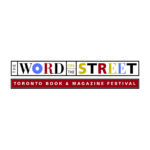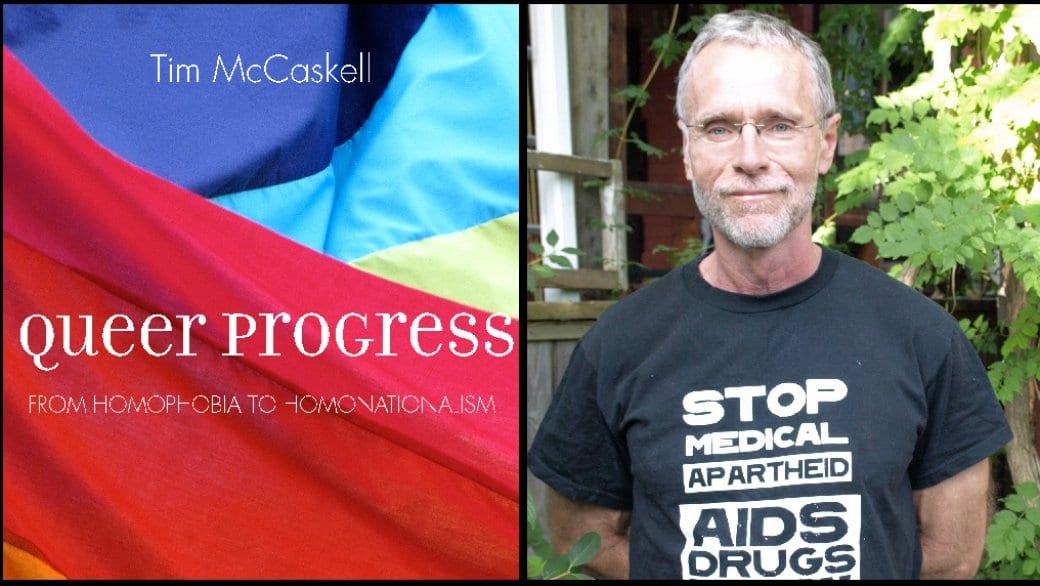This story was created by Xtra's branded content team alongside The Word On The Street, separate from Xtra's editorial staff.
“I always try to listen carefully to what people are saying when they hate me, or hate what I’m doing,” Tim McCaskell says.
He’s used to being a rabble rouser. And as an outspoken LGBT activist and educator, he’s no stranger to being at the centre of controversy. But in the summer of 2012, he found himself in a foreign situation: Pride Toronto was attempting to block him and the group he was a part of, Queers Against Israeli Apartheid, from marching in the upcoming parade. Among other things, they were accused of making Pride too political. McCaskell was struck by the irony of this — since Pride originated out of a protest against police raids — and the changing landscape of the parade.
He couldn’t help but look back at the path he had traversed as an early queer rights activist in the decades prior.
“How is it that in the ’70s and ’80s we could talk about politics but were prohibited from talking about sex, but [now] we’re encouraged — incited — to talk about sex, but prohibited from talking about politics? I didn’t know the answer to that,” McCaskell recalls.
Those musings formed the beginning of his journey to write a groundbreaking new book, Queer Progress: From Homophobia to Homonationalism, detailing modern LGBT history in Canada, making its debut at this year’s Word On The Street Festival in Toronto. McCaskell’s book, which is part memoir and part historical guide, investigates how broader changes in social, political and economic arenas in Canada and the world have impacted the trajectory of queer rights.
“We had come a long way but hadn’t exactly ended up where we expected,” McCaskell writes in the introduction of the book.
“First, such progress hadn’t affected all of us in the same way. Some parts of our community were just as disenfranchised as ever, while others had become identified with the status quo,” he says.
“As we moved from the peripheries to the mainstream, there was a remarkable transformation in dominant LGBT politics, from one aimed at social transformation to one that celebrated social inclusion.”
McCaskell says it’s also important to look carefully at who is included in the queer community and who isn’t.
The queer movement has been anything but straightforward —one need only look at Black Lives Matter’s staged sit-in at this year’s Pride. Indeed, McCaskell argues that strides for LGBT rights have benefited some in the larger queer community while others are still fighting, and that this imbalance can only be fully understood by pulling the lens back and looking at the mitigating factors that may have supported this.
This attempt to gather the various social and political factors of the past in order to decipher the present is at the heart of McCaskell’s book.
“Let’s actually try to understand what the social forces are that are shaping these things, because if we can understand that then we can understand what the pressure points are,” he says.
He also uses his own experience about coming out in the city in the early ’70s to punctuate the book. Employing his own story as narrative device is a tool to make potentially cumbersome history ring more personal and accessible, but it also serves to reflect the fact that history can be subjective. But he also wants you to disagree with him.
“What we need more than accepting my version of history as gospel truth, is debate about what actually happened.”
McCaskell hopes the book will help inform people and generate discussion on how the queer movement may continue onward.
“Without that, we’re kind of flying blind. And given the instability of the society that surrounds us, we need both eyes open at this point,” he says. “Because we don’t know what challenges are actually going to face queer people in a few months, never mind a few years.”
The Word On The Street
Sunday, Sept 25, 2016
Harbourfront Centre, 235 Queens Quay W, Toronto
thewordonthestreet.ca


 Why you can trust Xtra
Why you can trust Xtra